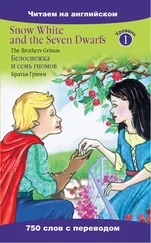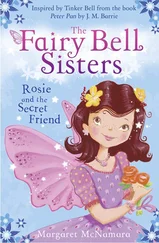Lisa See - Snow Flower And The Secret Fan
Здесь есть возможность читать онлайн «Lisa See - Snow Flower And The Secret Fan» весь текст электронной книги совершенно бесплатно (целиком полную версию без сокращений). В некоторых случаях можно слушать аудио, скачать через торрент в формате fb2 и присутствует краткое содержание. Жанр: Старинная литература, на английском языке. Описание произведения, (предисловие) а так же отзывы посетителей доступны на портале библиотеки ЛибКат.
- Название:Snow Flower And The Secret Fan
- Автор:
- Жанр:
- Год:неизвестен
- ISBN:нет данных
- Рейтинг книги:3 / 5. Голосов: 1
-
Избранное:Добавить в избранное
- Отзывы:
-
Ваша оценка:
- 60
- 1
- 2
- 3
- 4
- 5
Snow Flower And The Secret Fan: краткое содержание, описание и аннотация
Предлагаем к чтению аннотацию, описание, краткое содержание или предисловие (зависит от того, что написал сам автор книги «Snow Flower And The Secret Fan»). Если вы не нашли необходимую информацию о книге — напишите в комментариях, мы постараемся отыскать её.
Snow Flower And The Secret Fan — читать онлайн бесплатно полную книгу (весь текст) целиком
Ниже представлен текст книги, разбитый по страницам. Система сохранения места последней прочитанной страницы, позволяет с удобством читать онлайн бесплатно книгу «Snow Flower And The Secret Fan», без необходимости каждый раз заново искать на чём Вы остановились. Поставьте закладку, и сможете в любой момент перейти на страницу, на которой закончили чтение.
Интервал:
Закладка:
Three days before Elder Sister went to her new home, we had the Day of Sorrow and Worry. Mama sat on the fourth step to the upstairs chamber with her feet on the third step and began a lament.
“Elder Daughter, you were a pearl in my hand,” she chanted. “My eyes doubly flood with tears. Twin streams pour down my face. Soon there will be an empty space.”
Elder Sister, her sworn sisters, and the village women began to weep upon hearing my mother’s sadness. Ku, ku, ku.
Aunt sang next, following the rhythm my mother had set. As always, Aunt tried to be optimistic in the midst of sorrow. “I am ugly and not so smart, but I have always tried to have a good nature. I have loved my husband and he has loved me. We are a pair of ugly and not so smart mandarin ducks. We have had much bed fun. I hope you will too.”
When my turn came, I lifted my voice. “Elder Sister, my heart cries to lose you. If we had been sons, we would not be torn apart. We would always be together like Baba and Uncle, Elder Brother and Second Brother. Our family is sad. The upstairs chamber will be lonely without you.”
Wanting to give her the best gift I could, I sang the knowledge I had learned from Snow Flower. “Everyone needs clothing—no matter how cool it is in summer or how warm it is in winter—so make clothes for others without being asked. Even if the table is plentiful, let your in-laws eat first. Work hard and remember three things: Be good to your in-laws and always show respect, be good to your husband and always weave for him, be good to your children and always be a model of decorum to them. If you do these things, your new family will treat you kindly. In that fine home, be calm of heart.”
The sworn sisters followed me. They had loved their sworn sister. She was talented and considerate. When the last girl married out, their treasured sworn sisterhood would dissolve. They would only have memories of embroidering and weaving together. They would only have the words in their third-day wedding books to console them in the years to come. When one of them died, they vowed that the remaining sisters would come to the funeral and burn their writings so the words would travel to the afterworld with her. Even as the sisters were filled with anguish at her departure, they hoped she would be happy.
After everyone had sung and many tears had been shed, Snow Flower made a special presentation. “I will not sing for you,” she said. “Instead, I will share the way that your sister and I have found to keep you with us always.” From her sleeve, she pulled out our fan, whipped it open, and read the simple couplet we had written together: “Elder Sister and good friend, quiet and kind. You are a happy memory.” Then Snow Flower pointed out the little pink flower that she had painted in our growing garland at the top of the fan to represent Elder Sister forever and ever.
The next day, everyone gathered bamboo leaves and filled buckets with water. When Elder Sister’s new family arrived, we showered them with the leaves as a symbol that the love of the newlyweds would be as eternally fresh as the bamboo; then we tossed the water to tell the groom’s family that she was as pure as that clear and vital liquid. Much laughing and good cheer accompanied these pranks.
More hours passed with meals and laments. The dowry was displayed and everyone commented on the quality of Elder Sister’s handiwork. All through the day and night, she looked beautiful with her tear-stained eyes. The next morning, she entered the palanquin to go to her new family. People tossed more water and called out, “Marrying a daughter is just like throwing out water!” We all walked to the edge of the village and watched as the procession crossed the bridge and left Puwei. Three days later, a delivery to Elder Sister’s new village was made of glutinous rice cakes, gifts, and all our third-day wedding books, which would be read aloud in her new upstairs chamber. The day after that, as custom required, Elder Brother took the family cart, picked up Elder Sister, and brought her home. Except for conjugal visits a few times a year, she would continue to live with us until the end of her first pregnancy.
Of all the events of Elder Sister’s marriage, what I remember most is when she returned after a nuptial visit to her husband’s home the following spring. She was usually so peaceful—sitting on her stool in a corner, quietly working with her needle, never causing an argument, always obedient—but now she knelt on the floor with her face buried in Mama’s lap, weeping her woes. Her mother-in-law was abusive, always complaining and criticizing. Her husband was unknowledgeable and rough. Her in-laws expected her to haul water and wash clothes for the entire family. See how raw her knuckles were from yesterday’s chores? These people did not like to feed her and talked ill of our family for not sending enough food for her when she visited.
Beautiful Moon, Snow Flower, and I huddled together, making clucking sounds of commiseration, but inside, although we were sorry for Elder Sister, we believed this kind of thing would never happen to us. Mama smoothed Elder Sister’s hair and patted her trembling form. I expected Mama to tell her not to worry, that these were just temporary problems, but no words came. With helplessness in her eyes, Mama looked to Aunt for guidance.
“I am thirty-eight years old,” Aunt said, not with sympathy but with resignation. “I have lived a miserable life. My family was a good one, but my feet and my face made my destiny. Even a woman like me—who is not so smart or beautiful or is deformed or mute—will find a husband, because even a retarded man can make a son. Only a vessel is needed. My father married me to the best family he could find to take me. I cried like you do now. Fate was crueler still. I could not have sons. I was a burden to my in-laws. I wish I could have a son and a happy life. I wish my daughter would never marry out so that I would have her to hear my sorrows. But this is how it is for women. You can’t avoid your fate. It is predestined.”
These sentiments coming from my aunt—the one person in our household who could always be counted on to say something funny, who always talked about how happy she and Uncle were with their bed fun, who always guided us in our studies with good cheer—were a shock. Beautiful Moon reached over and squeezed my hand. Her eyes filled with tears at this truth, which had not been spoken aloud in the women’s chamber until now. Never before had I thought about how hard life had been for Aunt, but now my mind raced over the past years and how she had always put a smiling face on what had clearly been a disappointing life.
Needless to say, these words did not comfort Elder Sister. She sobbed harder, putting her hands over her ears. Mama had to speak, but when she did the words that came out of her mouth slithered from the deepest part of the yin— negative, dark, and female.
“You married out,” Mama said, in a way that seemed oddly detached. “You go to another village. Your mother-in-law is cruel. Your husband doesn’t care for you. We wish you would never leave, but every daughter marries away. Everyone agrees. Everyone goes along with it. You can cry and beg to come home, we can grieve that you have gone, but you—and we—have no choice. The old saying makes this very clear: ‘If a daughter doesn’t marry out, she’s not valuable; if fire doesn’t raze the mountain, the land will not be fertile.’ ”
Hair-Pinning Days
Catching Cool Breezes
SNOW FLOWER AND I TURNED FIFTEEN. OUR HAIR WAS PINNED up in the style of phoenixes as symbols that we were soon to be married. We worked on our dowries in earnest. We spoke in soft voices. We walked on our lily feet in a graceful manner. We were fully literate in nu shu, and when we were apart we wrote each other almost daily. We bled each month. We helped around the house, sweeping, picking vegetables from the house garden, preparing meals, washing dishes and clothes, weaving, and sewing. We were considered women, but we didn’t have the responsibilities of married women. We still had the freedom to visit when we wanted and spend hours in the upstairs chamber, our heads bent together as we whispered and embroidered. We loved each other in the way I had longed for as a little girl.
Читать дальшеИнтервал:
Закладка:
Похожие книги на «Snow Flower And The Secret Fan»
Представляем Вашему вниманию похожие книги на «Snow Flower And The Secret Fan» списком для выбора. Мы отобрали схожую по названию и смыслу литературу в надежде предоставить читателям больше вариантов отыскать новые, интересные, ещё непрочитанные произведения.
Обсуждение, отзывы о книге «Snow Flower And The Secret Fan» и просто собственные мнения читателей. Оставьте ваши комментарии, напишите, что Вы думаете о произведении, его смысле или главных героях. Укажите что конкретно понравилось, а что нет, и почему Вы так считаете.












